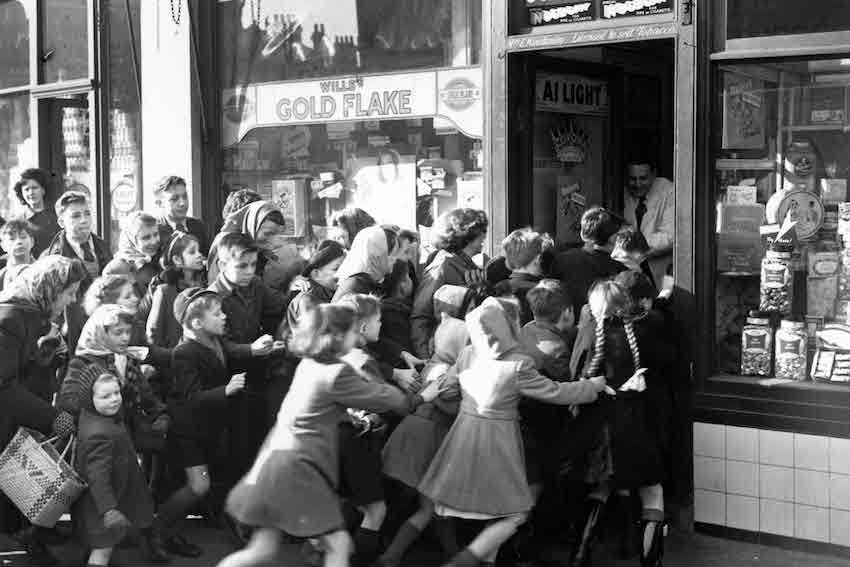“The holidays are coming” that’s all we think about when November starts. With the arrival of Christmas and New Year, the shopping list grows longer. Gifts for friends and family, clothes, home improvements, party preparations and dinner. But don’t worry, this month also brings the holidays to the shopping world, with their crazy prices: Black Friday and Singles Day.
These dates are world-renowned for the huge discounts that online and offline shops give on all their merchandise to open up the festive shopping season. Not only do you look forward to them to buy what you like the most at the best prices, but the shops and best brands also look forward to them because of the great profits that it represents for them. Have you ever wondered where these dates come from? Put on your seatbelt to travel back in time with us and discover the origin of these phenomena.
Black Friday

The Friday after Thanksgiving, celebrated on the fourth Thursday of November, millions of people go out to the shopping malls, shops collapse with customers trying to take everything and sales records are broken on department stores’ websites. People get carried away by the discounts and the festive shopping season kicks off not only in the United States but all over the world. Three words, one international phenomenon: Black Friday sales.
There are many theories about how this event was born in the United States and transformed into this day of madness, an emblem of consumerist culture. The first theory, which has now been discarded, relates it to the slavery era, when slave traders used to make sales on the cost of black slaves before the start of winter. The other, more realistic, baptizes as “Black Friday” the 24th September 1869, when two Wall Street brokers, Jim Fisk and Jay Gould, failed when they tried to take over the entire gold market in favour of Boss Tweed, a New York politician.
But one milestone marks history and christens this date: the Philadelphia´s collapse in mid-1950. On the Saturday after Thanksgiving, the city was hosting a football match between soldiers and the navy. Due to the large number of people who came out to shop on Friday and stayed to watch the game on Saturday, the streets were overwhelmed and the police had to take 12-hour shifts to contain the horde. In the newspaper Telegraph, “Black Friday” is used to refer to this day. And from the 1960s onwards, department stores began to use it to refer to the masses of customers who came to shop on this day.
In the 21st century, discounts are global in scope and an alternative event has even been developed for the following Monday called Cyber Monday, where discounts are extended to online shopping.
Singles Day

With a view to having its own Black Friday and Cyber Monday, China launched Singles Day as a new alternative for great deals in the biggest shops in the Asian world. On 11 November, Asian e-commerce giants such as AliExpress and Banggood promote their own big discounts to compete with Amazon’s million-dollar profits.
But where does it come from? Well, the name says it. Singles’ Day was born in the 1990s as an alternative proposed by young students at Nanjing University as a protest to the social norms of traditional Chinese society that pressured young people to marry at an early age. As a counterpart to the traditional Valentine’s Day, this date is to take pride in being single, so now being single is also celebrated! It is celebrated on the 11th of the 11th for a special reason: the number 1 symbolizes a tree without leaves, which is the representation of the single person.
So far everything is clear, except for one detail… How does it get into the world of shopping? That’s when we get to 2009, when Alibaba comes up with a stroke of genius: to get commercial value out of this holiday that is growing in China. And jumping off a cliff, it offered huge sales for the 24 hours of Singles Day. The result: a good profit and an event in the world of shopping that went from Asia to the whole world.
Who wins? The worldwide success in their numbers
Now, what everyone is wondering is which of the two wins? Black Friday, the star for years, or Singles Day, the big surprise looking to take center stage in the West.
According to a Salesforce report that collects sales results from the last week of November until the end of 2020, in the United States the earnings for this quarter are around 1.1 trillion dollars, representing 30% of its annual turnover. The Black Friday weekend alone saw an estimated 30 billion dollars spent, of which 10.8 billion were online purchases. Due to the pandemic, the number of online purchases is expected to increase as 74% of users prefer to shop online.
Singles Day is going strong and is no slouch in terms of profits. For the year 2020, the electronic giant Alibaba extended the discounts for 11 days, obtaining an overwhelming victory: 74 billion dollars. This figure significantly exceeds the profits of the Black Friday weekend – not bad after only 11 years in the competition! That year they increased their profits by 26% compared to the 38 billion earned for that day in 2019. 250,000 brands participated of which 31,000 were foreign from China, and it is expected that this year the event will have more international participation.

Choose your competitor wisely, but whether you bet on Black Friday or Singles Day, you can’t miss out on the discounts. Check out your favourite websites, stores and brands. They’re getting ready, you’re getting ready so you don’t miss anything on your holiday shopping list.





